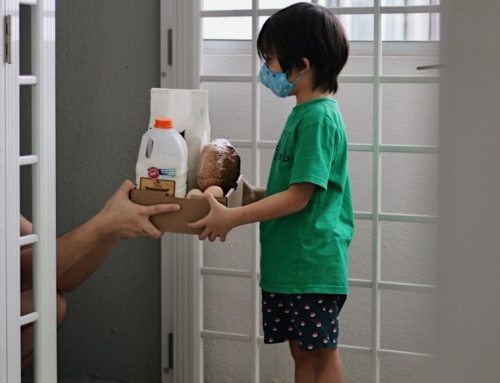Making Amends Towards New Beginnings
Repairing Rifts Caused by Family Conflicts

Photo by @natalycelik_photography on Instagram
While a family is supposed to be one cohesive unit, it is still made up of individuals with unique personalities, interests, and beliefs. The love that a family shares enables them to live harmoniously, but there will be moments where each member may find themselves at the opposite ends of a conversation. Disagreements may not be ideal, but research shows that it's not realistic, possible, or even healthy to expect that relationships will be easy going all the time. It is inevitable for conflicts to arise, but what the family has to focus on is how to respond to these challenges.
In life, misunderstanding and miscommunication are often unavoidable, but what truly matters is the way we choose to handle these situations. Repairing relationships means coming back together to manage emotions and arrive at a common point of comprehension through words and actions. Interpersonal conflict may be unavoidable, but there is always a way to maintain an important relationship between family members -- and that is getting better at being in sync with each other, expressing warmth and affection, and building up an investment of positive interactions in the process.
For a repair to work, it has to come from an authentic place in your heart. Here are four steps towards a sincere gesture to close the rift created by family conflicts:
- Understand the hurt you caused. Unintentional or not, you have to be able to acknowledge incidents where your words or actions were perceived as painful. Instead of being defensive about it, focus on understanding the other person's feelings through an honest conversation. Reserve your responses; listen first with an open mind and heart.
- Say sorry and mean it. You don't need a grand show of remorse. Sometimes, a simple "I'm sorry" that comes from the heart is enough for family to forgive you wholeheartedly. An apology may differ depending on the gravity of the situation, but no matter what form it takes, it doesn't make you less of a person. It is a sign of humility, maturity, and accountability.
- Share your side when it is warranted. If you feel like the other person wants to know the reason behind your actions that hurt them, provide a brief explanation of your point of view. Just make sure that the intent is clarification, and not defense. This might read as invalidating, especially when the focus of an apology should be on the wounded person's experience.
- Let them know that you want things to get better. Aside from a sincere apology, we need to be concrete and actionable to be more confident that we won't commit the same mistake again. Express your desire to do and be better, and talk about what needs to be done to achieve your goals and maintain the peace that reigns within the household.
Repairing relationships don't just involve asking for forgiveness from another person. It's also about forgiving yourself, too. We all make mistakes, but we should not dwell on them. As much as you practice kindness to safeguard your strong family fabric, be kind to yourself, as well.











